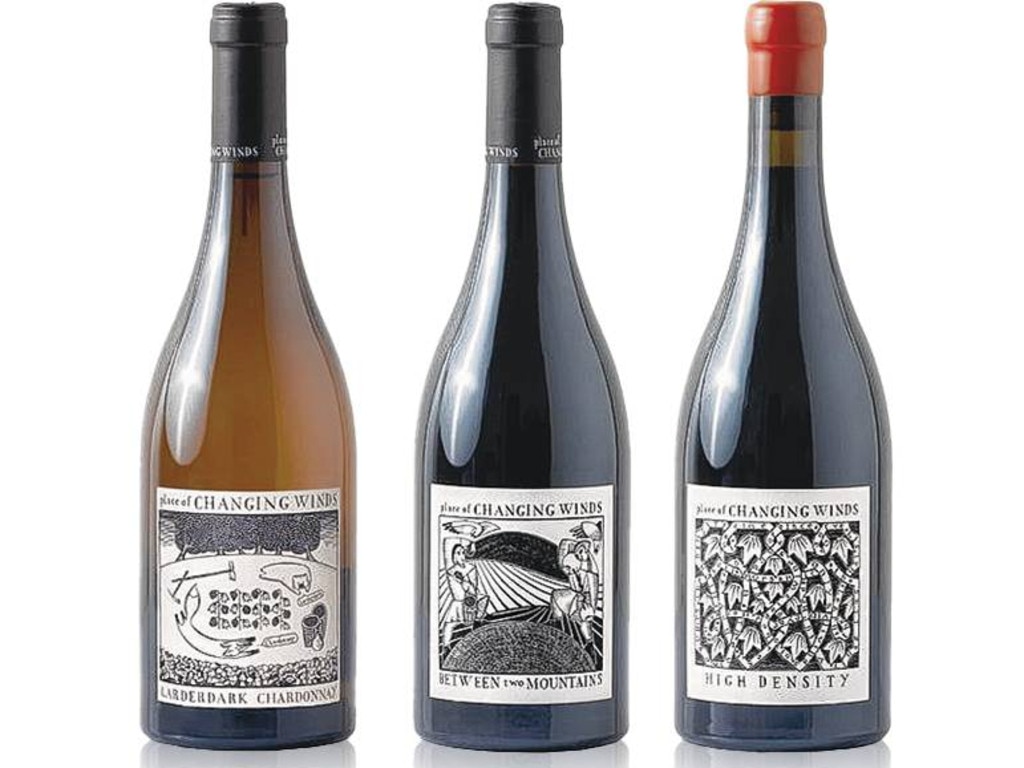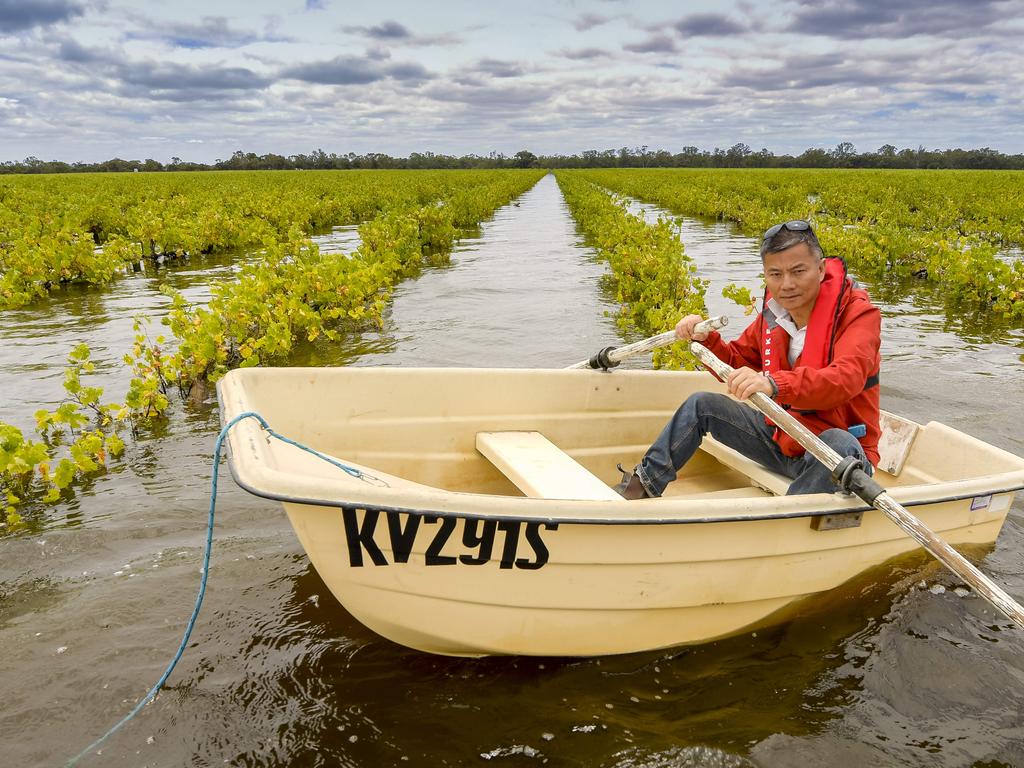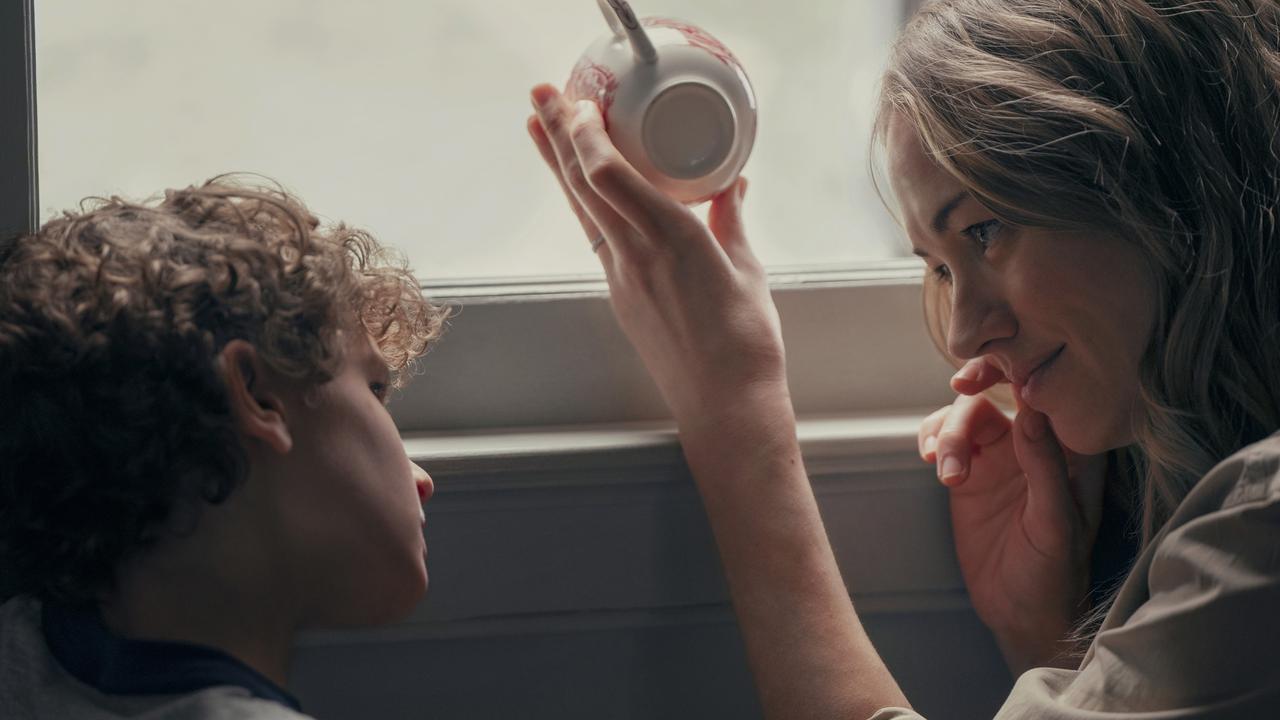Turning a junkyard into a vineyard can’t be that hard … can it?
City skills, country skills. You sort of know they’re different, but it’s only away from the latte belt that I realise what a great gulf there is between the two.
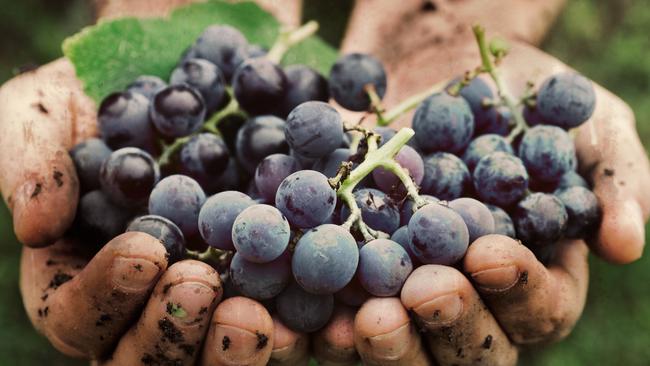
My sister Mary and I are removing rubbish, and for the past hour we’ve been labouring over a rusty water tank. Although it’s partly flattened, it’s too big to put on to the ute’s tray for the next run to the Waste Transfer Station, otherwise known as The Tip. So, we have to reduce its size. Somehow. We decide to cut it up and the only tool we could think of using was pliers. We’ve been crouching on the ground cutting this giant tank with small pliers for an hour. As I wrestle with the cutting action and bending the cut parts back to continue to work my way across the tank, I have had time to think.
Here’s what I think: I don’t think these are the right tools for the job, but then I have no idea what a job like this requires. Every job I’ve encountered at the farm is a new challenge, requiring skills I don’t have and tools I don’t know about. How do people do this?
Next thought: What tool should be used to reduce the size of a 22,000-litre tank? Scissors, pliers, chainsaw, hammer, crowbar? Or is there something you can buy at the rural supplies store in town? I ponder how foolish I would feel going into the store and asking for a tank-cutting tool. It would give them a laugh, and I don’t need to give blokes another reason to laugh at women.
My choice of tool derives from being an urban, middle-aged female professional who has few practical skills beyond the Tools tab on her computer. I also have a fridge covered with magnets from tradies who can fix a leaky tap, mend a length of deck timber, install a device, clean windows, fix grouting or clear a gutter. That’s what city people do: they call for help. So, when faced with having to fix something, or reduce the size of a tank so it can fit on the back of a ute, my only solution is to get a scissors-type thing and cut it up. Thus, my sister and I are crouched over this rusty tank, looking like we’re cutting out the pattern for an automobile.
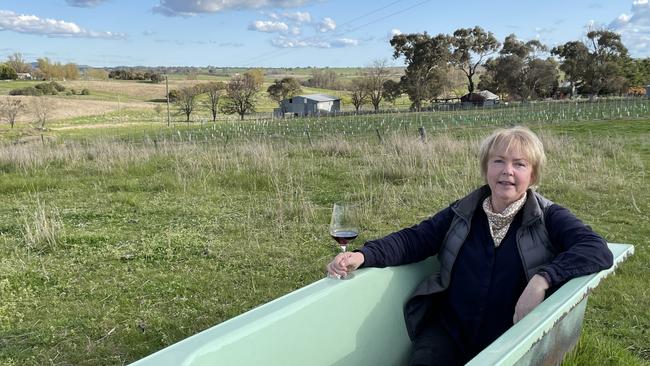
I had hoped that Mary would have a better solution, if only because she has been living in the country for a few years now. It turns out she’s hardly more equipped than me because she has spent her career as a linguist and only has a few books and many academic papers, conferences and PhD students to her bow. If we could talk this tank on to the back of a ute, we’d be the perfect people for the job.
The other thing that occurs to me, as I try to avoid being cut by the galvanised iron, is to ask whether this tank really is a water tank. I stand up to stretch and look at the tank carefully. It’s very brown, but that’s rust, right? They didn’t use galvanised iron tanks for septics, did they? Surely, they’d rust. Or cave in. Or something. I realise I have no idea what a septic tank is made of.
I glance down the hill to where Roger and the fencer Ian are building the infrastructure for the vineyard. They have tools – tools that can dig, tools that determine a straight line to a distant post, tools that can tighten wire. They look as if they know what they’re doing. Not for the first time, I wonder how blokes get the clean jobs and I end up wrestling with stuff that’s messy and possibly toxic. I suggest a coffee break to Mary and she agrees.
As we wander inside, avoiding the hazards of old pipes, wires, broken furniture and pots that still litter the surrounds of the house, I feel immensely grateful that Mary is willing to be my garbo apprentice. It’s a lonely job, and so far I have filled three giant skips, done about 30 ute trips to the tip and held a couple of burn-offs.
Yet I’ve still not reached the inner circle of junk in the house compound. I’ve also busted fingernails, practised my stock of curses and coarsened the skin on my hands to a crocodile texture as I’ve inched slowly from the outskirts of neglect towards the house – a house I hope might be demolished or carried away in a southerly storm. During that time, when friends have asked me what I’m contributing to the tree change, I’ve replied, “Garbology”. And I’m not ashamed of it.

Which is strange really. Because I’ve been a senior journalist, working among business leaders and politicians, academics and professionals, using big words and wearing smart clothes and bringing in a salary that afforded a nice home, enabled the raising of three children and even paid for the odd holiday to those nightmare theme parks up the coast. I had business cards. But suddenly I have a borrowed ute and Bunnings gloves – big meaty gloves – and lots of them, because I keep losing them in the back of the ute. And, yet, I found the work strangely satisfying. Maybe I’d missed my calling as a garbo.
Half an hour later, when Mary and I return to the job, the tank has disappeared. I look at the ute tray and there it is – folded like an origami box on the back. Roger comes up when he sees us staring at the neat package.
“Ian did it,” he says. “You should have seen it. He just brought his tractor up, used its bucket to bend the metal into smaller and smaller parts, and plonked it on the back of the ute. It was amazing to watch.”
Ian is amazing to watch, especially when he’s in his tractor. Over the months ahead, we will get to see Ian and his tractor plough up fields, carry loads of poles and wire, shift heavy junk around the property, take down a huge tree that had been split in two in a storm and gently move a hive of bees from a dead tree that needed to be removed. He uses the tractor – an eight-tonne, craggy-looking machine – like an extra hand. It’s an extension of his body in a way that suggests either confidence or a lifetime of use. Or both. The morning I watched him take down the giant split tree was like watching a ballet performance. He’d manoeuvre the machine into place then raise the forks and pull, twist or nudge the branches to the ground. Then another deft twist of the machine and the next branch would be coaxed to the ground.
If I’m sounding impressed, it may be because Roger and I were trying to learn how to operate a much smaller tractor with two sets of gears. Or maybe there were two engines. Whatevs. It had lots of safety devices, attachments that seemed impossible to grapple with, instruments that got cranky whenever you didn’t pay attention and levers that might have been for operating the giant bucket or turning on the air conditioning. If Ian operates his tractor like a surgeon with an eight-tonne scalpel, we operate ours like a Rubik’s cube while being colour blind.
But Roger and I shouldn’t have been surprised. Our brains had been formed by decades of using them for reading, writing, arguing, extrapolating and representing. The neural pathways to words and images were so well travelled they were like highways, while the pathways to the physical world of machines, shape shifting, building and connecting things were so atrophied you’d be pushed to describe them as goat tracks. Our neural pathways for solving practical problems only led to the magnets on the fridge.
City skills, country skills. You sort of know they’re different, but it’s only away from the latte belt that I realise what a great gulf there is between the two and how useless some skills are when you take them elsewhere. In the country, my city skills are peripheral – nice to have during a coffee break, but not necessary for the jobs of a farm. And sometimes they just serve to alert country folk to the presence of an outsider. Ian’s country skills wouldn’t transfer easily to the city, but only because they are too broad to fit on a fridge magnet. Ian is a fencer, machine operator, excavator, surveyor, grader, tree lopper, sheep and pig farmer, shearer, orchardist, plumber, mechanic, rubbish removalist, fencer. And he might even manage a tractor ballet routine if asked nicely.
Ian doesn’t just shape his environment, he is shaped by it. Heavy-set, with a hesitant smile and muscular hands, he is something of a tracker. He will point out that the farm gate has been hitched to the third notch and therefore a certain person has probably made a visit (he knows we set it to the loosest notch and I don’t think he approves). He will note tyre tracks on our muddy driveway and ask if we’ve had a big delivery recently. He knows the local gossip, if only because he is related to so many locals. He also mentally tracks the animals, birds, watercourses and bits of junk that might be useful for fixing stuff. He’s too big for a fridge magnet, but we’ve got his number and we know we can call him every time we have a problem. We’re already good friends with Ian.
This is an edited extract from Growing Grapes Might Be Fun: How we made a vineyard out of a junkyard at Cockatoo Hill, by Deirdre Macken, published on April 4 by Allen & Unwin

